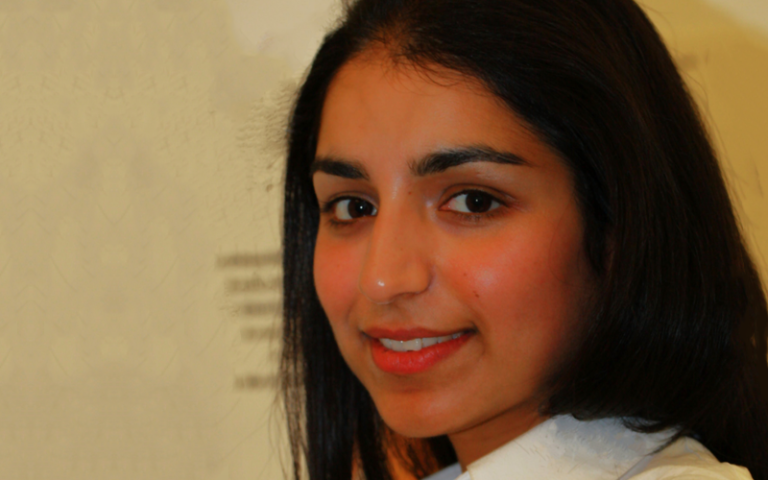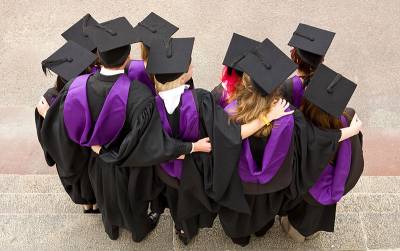Kirren Brah was a PhD student who graduated in 2018. She talks to us about her experience studying at IOE.

What is your thesis about?
It was an investigation into the ‘Theory-Practice Relationship for Acupuncture Education in the UK’. My preliminary research defined the historical landscape of medicine (conventional, alternative and complementary) subject to political, social and technological changes. I also used the lens of social theories of learning to develop the conceptual insights that framed the investigation.
“The study built new insights concerning pedagogy, competent practice, educational standards and regulation of practice and public health literacy.
The wider implications for the practice-based professions were also considered.
You created a podcast based on your thesis, can you tell us about your journey towards creating this? What were your motivations?
My research findings and experiences as a practitioner and clinical lecturer were instrumental towards me wanting to make an impact.
“It was my PhD process that actually pushed me over the hump to creating the overarching theme of my podcast ‘Bridging Medical Paradigms’.
I was able to see how multifaceted research into pedagogy, practice and policy is, and the implications for the different modalities of medicine from the conventional to the alternative and or complementary – what forms the basis of our healthcare system today, but I also wanted to use the podcast as a vehicle to improve public health literacy.
- Listen to Kirren's podcast on Spotify or Apple Podcasts.
What did your journey to IOE look like?
For my undergraduate degree, I undertook a five-year medical programme integrating Traditional Chinese Medicine (TCM) and Conventional Medicine. It was based at Middlesex University (UK) and the Beijing University of Chinese Medicine (China) and involved internships in private and public healthcare in the UK and China.
It was modelled on the Medical School curriculum in China, where both TCM and Conventional Medicine form the primary healthcare system that China offers its population. It was really interesting for example, at the Xiyuan Hospital in China, where cancer patients would be receiving chemotherapy in conjunction with acupuncture as a means to minimise the side effects of chemotherapy and boost the patient’s immune system. In addition to specialist departments of Conventional Medicine such as Cardiology, there were also TCM specialist departments, such as those in Chinese Herbal Medicine, Tuina (Chinese medical massage) and Qigong (Chinese medical exercise).
After graduation I undertook apprenticeships from experts in the field and trained further, alongside building my practice in private and public healthcare. I also started working as a clinical lecturer at a private college in the UK for undergraduates and medical professionals from different modalities e.g., Dentists, GP’s, Nurses.
“Through my clinical experience, I was often having to go the extra mile for my patients to ensure that they had the best health outcome, and it was quickly becoming apparent that there were issues with public health literacy.
This stemmed from issues within the ‘healthcare system’ as well as patients’ ability to understand and utilise information to make decisions about their own health and care, for example, identifying clinical negligence and directing my patients on the path for a better health outcome as well as facilitating the receival of compensation.
As a clinical lecturer for acupuncture students in the UK, numerous concerns emerged; in comparison to my training, I noticed certain areas of theoretical knowledge and their application to practice had been omitted from the curriculum e.g., there was an insufficient underpinning of Conventional Medicine meaning students had difficulties in recognising ‘red flags’ necessitating referral to a specialist, or being aware of pharmaceutical drug interactions with acupuncture treatment.
I was obligated to continuously provide students with handouts and extra seminars in order to fill in the gaps in the curriculum to support their clinical training with patients.
“In my pursuit to improve the overall situation that I was experiencing in my clinical practice and teaching, I thought furthering my understanding into pedagogy, policy and practice would be the best way forward. This started with undertaking an MA in Higher and Professional Education and then a PhD both at IOE.
Why did you choose to study both an MA and a PhD here?
Being based in London, IOE was ideal for me, and I was already aware of the magnitude of the work across education, culture, psychology and social research that had been conducted at IOE and their contributions to society.
“Undertaking my MA here meant that I’d have access to the largest education library in Europe.
It is so well situated that I also had access to the nearby Senate House, SOAS and UCL main libraries.
I had such a positive experience with my MA in building a sound foundation towards understanding the multifaceted landscape of pedagogic research as well as initiating research into my field of study that I decided to proceed with my PhD here.
What was the best part of your degree and time at UCL, and how did it shape your career?
It was much more than a degree. Being an independent researcher can be a lonely process if you let it, but being able to have conversations about the experience and make friends with students from all over the world, Chile, Germany, China and Japan, of whom I am still in touch with today even if they are halfway across the globe, made the process that much richer and enjoyable.
“I highly recommend research students avoid working in a box and take advantage of the opportunities at UCL and IOE to network and engage in being part of societies, conferences and seminars in the different facets of education.
It was beneficial for me to do this to look at my field of study through different lenses, adding layers to my thinking, and it was also inspiring to be exposed to the work and impact of others in the field. I was particularly influenced by one of Stephen Ball’s seminars where he mentioned ‘useful research’ in connection with Michel Foucault’s idea in that it is to ‘reexamine evidence and assumptions, to shake up habitual ways of thinking and working to dissipate conventional familiarity to re-evaluate rule and institutions'.
“The opportunities to present my work and open up to being critiqued was a great experience for understanding about knowledge validation and forming an argument.
Last updated 15 October 2023.
 Close
Close


